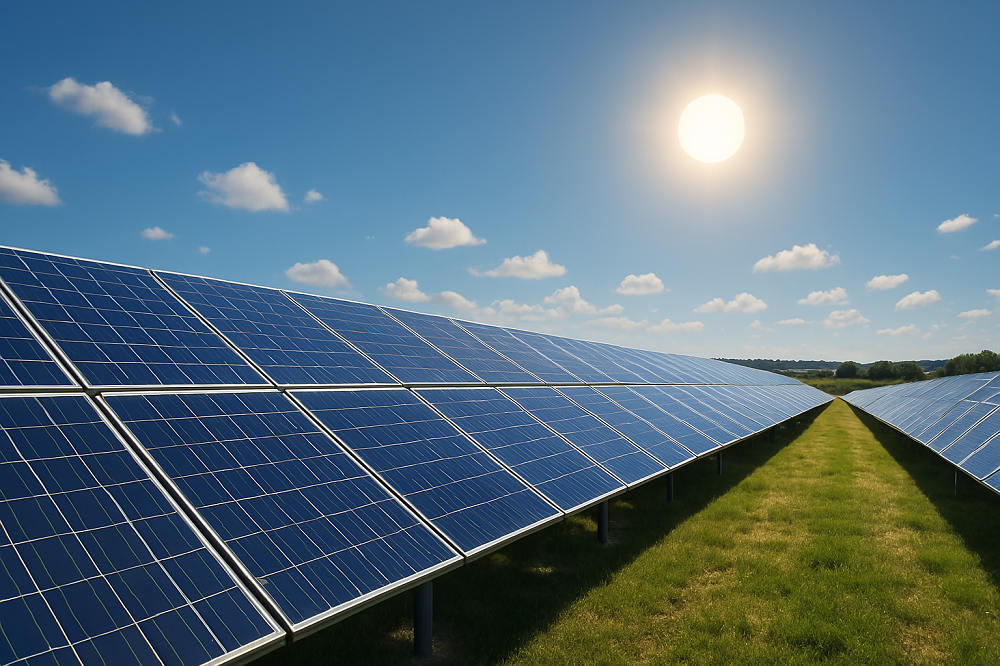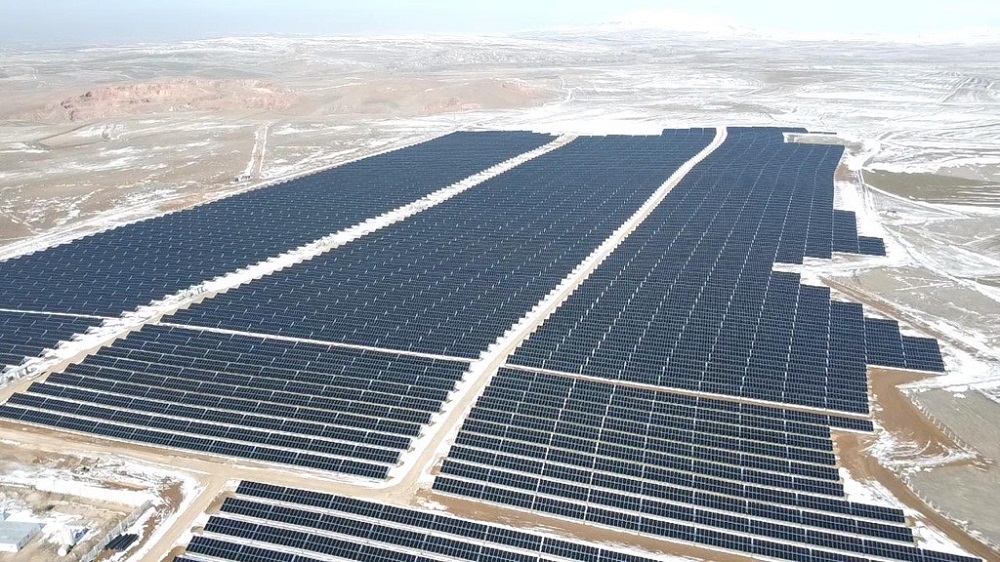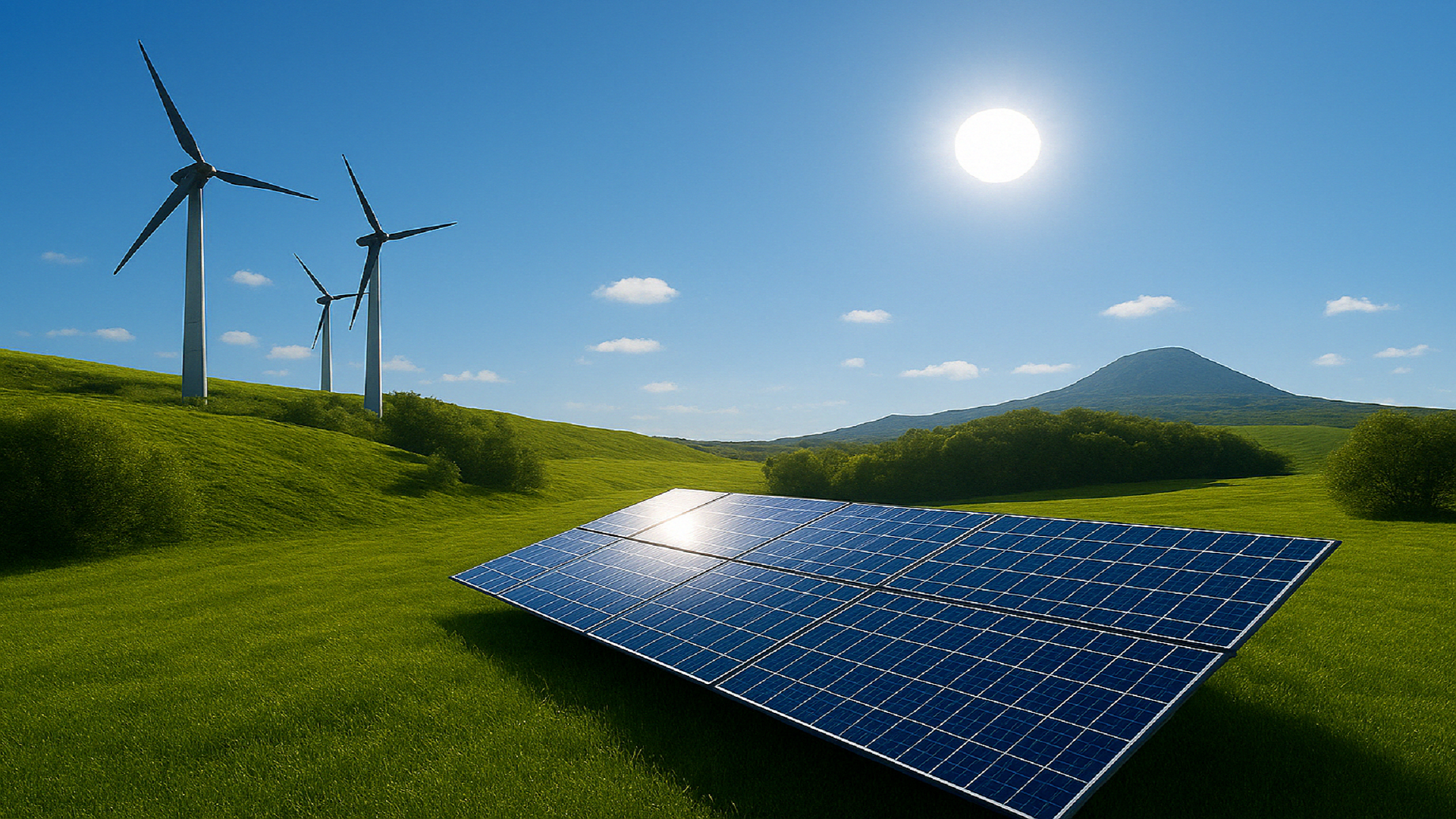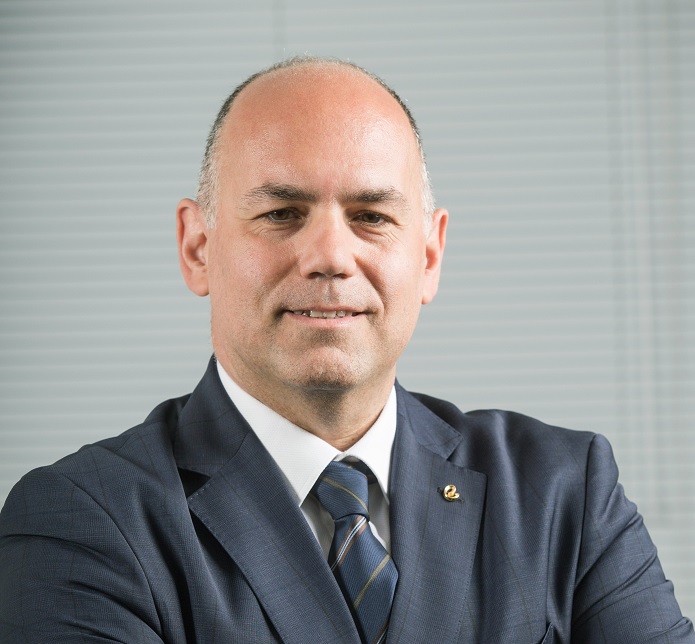As the world’s energy balance shifts rapidly, transitioning to renewable resources is no longer a choice, it’s a necessity. Eczacıbaşı Group continues to take determined steps to achieve this transformation, working toward a sustainable future with investments in renewable energy, efficiency projects, and carbon emission reduction strategies.
Since 2022, Eczacıbaşı Group has sourced all the electricity consumed in its operations in Türkiye from renewable energy sources. By the end of 2030, it aims to meet 100% of VitrA Tiles and Eczacıbaşı Building Products’ electricity demand and 50% of Esan and Sanipak’s demand from its own renewable energy plants.
One of the key milestones in this effort has been the commissioning of the VitrA Tiles Solar Power Plant in Aksaray. What does this investment mean for a group active in energy-intensive industries? How does renewable energy affect the business world and the economy? What are Eczacıbaşı’s plans for energy transformation in the coming period?
We discussed all these questions and more with Tolga Güneri, General Manager of Eczacıbaşı Energy Investments, the new Group company driving the Group’s energy transformation and leading its initiatives in this field.
Why is accelerating the energy transition important for a Group that also operates in energy-intensive sectors?
Accelerating the energy transition is not only about fulfilling our environmental responsibilities, it’s also critically important for increasing our competitiveness, optimizing our costs, and reducing our long-term risks. For a Group active in energy-intensive sectors, the transition to low-carbon and energy-efficient solutions is essential both for reinforcing our operational sustainability and for complying with regulations.
For industrial enterprises, energy transformation is a guarantee of operational continuity in the future. Volatility in fossil fuel prices and regulatory pressures such as carbon taxes are making traditional energy models increasingly unviable. Accelerating this transformation, increasing resource efficiency, and investing in innovative technologies will make our companies more resilient both environmentally and economically. Moreover, by reducing our carbon footprint, we not only meet legal requirements but also uphold the commitment we made with our stakeholders of contributing to a sustainable future.
In short, energy transformation is a key component of sustainable growth. Investing in energy transition means future-proofing our business model and creating a positive impact across our entire value chain.

The concept of renewable energy is becoming increasingly prominent in today’s business world. What are the main motivations for companies to invest in renewable energy?
Renewable energy investments are growing rapidly year by year. Globally, renewable energy capacity grew by 700 GW last year, setting a new record for the 22nd consecutive year. By 2030, growth is expected to accelerate further, with an additional 5,500 GW of new capacity added. This expansion—nearly three times the growth recorded between 2017 and 2023—would allow renewable sources to meet half of the world’s electricity demand.
There are five main reasons behind the sharp increase in renewable energy investments.
The first is national policies aimed at reducing dependence on imported energy. Geopolitical risks, supply security issues, and fluctuations in fossil fuel prices are driving countries toward safer and more local energy sources.
Second, the increasing feasibility of renewable energy projects. Thanks to technological advancements, the cost of generating electricity has dropped significantly. According to data from the International Renewable Energy Agency (IRENA), from 2010 to 2023, the capital cost of solar power plants fell to one-seventh of previous levels, while generation costs declined to one-tenth. Improved feasibility has made renewables an attractive investment area.
Third, the growing ease of financing renewable energy projects. These projects support the transition to a low-carbon economy and provide long-term stable revenues, making them easier to finance under favorable conditions. Financial institutions also consider these projects more reliable due to the increased accuracy in forecasting energy output enabled by improved technology.
Fourth, environmental sustainability. Renewable energy stands out as the production method that causes the least harm to the environment and plays a critical role in reducing carbon emissions and tackling climate change.
Finally, renewable energy not only reduces emissions from the electricity grid but also contributes to the decarbonization of industrial production processes, making large-scale energy transformation possible.
When all these factors are considered together, it’s clear that investing in renewable energy has become a necessity—both economically and environmentally.

What is the significance of the VitrA Tiles solar power plant in Aksaray, recently commissioned, and what role does it play in the energy transition?
The Aksaray solar power plant has enabled VitrA Tiles to put its sustainability vision into action. Commissioned in February, the plant—with its installed capacity of 36 MWp—is a standout not only in the ceramics industry but also in the renewable energy sector more generally.
The plant was built on a 416 decares of land owned by our Group, which had remained unused for over 40 years. Utilizing this vast area—equivalent to approximately 58 football fields—for renewable energy generation was a highly efficient decision from both an environmental and economic perspective.
The plant is expected to generate approximately 57 GWh of electricity annually—more than half of VitrA Tiles’ annual electricity consumption. Meeting the majority of its electricity needs with clean energy from its own plant will help to significantly reduce the company’s carbon footprint and electricity costs. With a projected lifespan of at least 25 years, the project will also provide substantial long-term economic benefits.
To our knowledge, no other company in the global ceramics industry has made a renewable energy investment of this scale. In this respect, VitrA Tiles has extended its strong market position to the field of sustainable energy.
In addition, the Aksaray plant and the launch of Eczacıbaşı Energy Investments last year have supported our Group’s acquisition of important know-how and strategic perspective in renewable energy, laying the foundation for future sustainable energy investments.
Large-scale projects like the Aksaray Solar Power Plant require serious coordination and commitment. Can you tell us how this project came to life?
The Aksaray project is a success story that spanned two and a half years—full of challenges but ultimately very rewarding.
Within the scope of the Group’s strategy to expand renewable energy investments, my responsibility was to lead large-scale projects in this field. We submitted our connection application for the Aksaray Solar Power Plant in October 2022. We had less than one week to prepare the application in order to secure the grid connection capacity. Thanks to the dedicated efforts of the VitrA Tiles team, we successfully completed this critical stage.
Once the investment decision was approved, we formed our project team. Aydın Genç served as project manager, and Zeliha Koç joined us to manage the site during construction and operation. We take pride in the fact that a woman engineer led the construction site of such a large-scale project. One of the biggest challenges we faced was the 22-kilometer transmission line required to connect the plant to the grid, which crossed a large number of private parcels owned by 400 landowners.The most difficult part of the project was obtaining the necessary permits for this transmission line.
Finally, on February 21, 2025—a snowy day—we completed all official procedures and commissioned the plant. This marked the transformation of a piece of land owned by our Group for over 40 years into a site of major importance.
Of course, the project demanded great effort, and we overcame many difficulties. But we are happy to have succeeded as a team. One of the key advantages we had was the clear and consistent support of our senior management from the beginning. I would like to take this opportunity to once again thank everyone who supported and contributed to the project.
Our solar power investment in Aksaray is one of the clearest demonstrations of VitrA Tiles’ commitment to sustainability. With this plant, we now produce our own electricity and have taken a leading step in reducing the environmental impact of the ceramic tile industry. Today, we supply more than half of our factory’s electricity needs from our own renewable sources. This is not only an energy investment because it’s a firm stance in the fight against climate change. By 2030, our goal is to meet all our electricity needs with self-generated renewable energy. As VitrA Tiles, we will continue to support the transition to a low-carbon economy as an integral part of a sustainable future.
How are global technological advances and international regulations shaping Türkiye’s energy policies and investments? What incentives, partnerships, or steps are crucial for helping industrial companies accelerate their renewable energy transition?
Technological developments and international regulations are having a significant influence on Türkiye’s energy policies and investment strategies. Türkiye is working to increase its renewable energy capacity to strengthen energy independence and support sustainable development. In this context, the country aims to increase its wind and solar power capacity from the current 33 GW to 120 GW by 2035. Achieving this goal will require more than 100 billion dollars in combined public and private sector investment.
The share of renewable energy in Türkiye’s electricity generation has reached 42%, placing the country seventh among G20 nations. This position demonstrates Türkiye’s ability to quickly adapt to global developments and make notable progress.
To help industrial companies transition more rapidly to renewable energy, various incentives and regulatory mechanisms play a critical role. In Türkiye, unlicensed generation regulation and monthly offsetting practices make it easier for industrial companies to invest in renewable energy. In addition, the Energy Specialization Industrial Zones implemented by the Ministry of Industry and Technology stand out as key initiatives for accelerating such investments. The effective implementation of these zones will help reduce the infrastructure and permitting challenges faced by investors, enabling projects to be implemented more quickly and efficiently.
Mechanisms like the Renewable Energy Resource Areas (YEKA) model are also encouraging the development of large-scale renewable energy projects. Furthermore, long-awaited reforms to speed up the permitting process will play an important role in enabling more investments to move forward.
Where does Eczacıbaşı Group currently stand in terms of achieving its renewable energy targets?
As of today, our total installed capacity across the Group has reached 64.2 MWp. This capacity meets approximately 16% of our annual electricity consumption. The Group’s companies have set clear targets for 2030 in the field of renewable energy. VitrA Tiles and Eczacıbaşı Building Products aim to meet all of their electricity needs from their own renewable energy plants. Esan and Sanipak intend to meet half of their needs from in-house production. These targets correspond to approximately 65% of the Group’s total electricity consumption by 2030.
Achieving these renewable energy goals will not only provide a competitive advantage but also make a significant contribution to our sustainability vision. At Eczacıbaşı Energy Investments, we are working on a range of business models and financing solutions to realize these targets.



